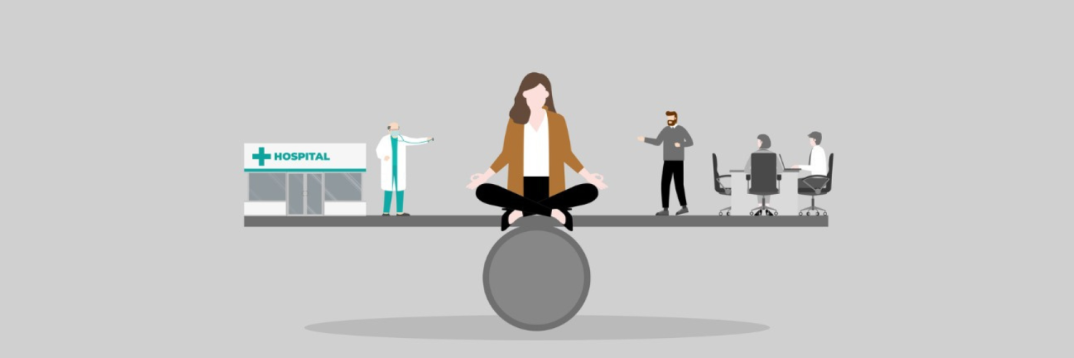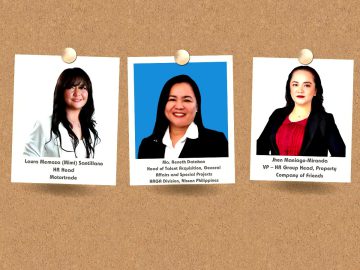Photo Credit: Korakrich Suntornnites
Insights on how physicians can find work-life balance, weighing work life and personal lifestyle to ensure an excellent quality of life for themselves.
In returning to my series on good health and the essential homework assignments to achieve this state, I would like to discuss work-life and even retirement-life balance.
Understanding the Meaning of Work
An initial discussion of how we can achieve an understanding of this balance must start with a discussion of potential ways that we can define “work” for ourselves.
A close mentor, Dr. Stephen G. Post, would often help answer this question by looking at the etymological roots of the concept of work. For many, work can be considered an occupation, for others, a career, and still, for others, a vocation. Understanding these distinctions allows us to return to the Latin root of these words momentarily. Occupation comes from the Latin occupare, which means to seize or to keep someone busy and active or to take up time or space. The word career comes from the Latin carrus, which means wheeled vehicle. As such, a career is often defined as an occupation undertaken for a significant period of a person’s life and with opportunities for progress. A vocation comes from the Latin word vocare “to call” and can be defined as a summons or strong inclination to a particular state or course of action.
How we define what we do daily from 7 to 5 or whatever our “work” hours may be can fluctuate over time and space and is influenced by our view of our daily efforts. It can also be influenced by external factors imposed by the work itself. The important aspect of defining our work is realizing how our definition and the realities of daily work impact our health and overall happiness.
A second part of the equation of equal importance to this discussion is how we define a good life. This is personal and more philosophical than the definition of “work” above. Importantly, this cannot be separated from our daily work. This work allows us to provide for other dreams and meaning. The reality is we often spend a lot of time actively working while we provide for ourselves and our families.
Balancing Work and Life for Well-Being
However, this work should not be our everything, as doing so may have detrimental consequences for our health and happiness. A more recent example of this is the hardships that were presented by the COVID-19 pandemic. Many personal colleagues and patients lost their work positions and scrambled to find meaning in their professional lives and redefine what a good life means to them. Similarly, most of us will face retirement but we must realize that this can be a beautiful and most healthy part of our existence should we choose to make it this way. Work transitions and retirement also allow us to appreciate that forces beyond our control, including economic, social, and political realities, often influence the lived experience of our work. However, we agree that some of our deepest needs as human beings are not dependent solely on our work but on our relationships.
Moreover, life is not separable from the other as much of what we do relies on our obligations and responsibilities that we have to other human beings. In my experience in caring for patients, how we define our work and contemplate this work in its relationship to others impacts the healthy balance of work and life.
I am privileged to care for patients from various personal and professional backgrounds and experiences. These include teachers, lawyers, medical professionals, military veterans, scientists, carpenters, construction workers, food service members, and consultants, to name a few. Many of these people view their work as mission-oriented and hold for themselves a high standard and level of responsibility in that their work has enormous implications on society and the lives of others. People are goal driven in nature and find a tremendous sense of satisfaction when goals are achieved. Likewise, there can be a tremendous sense of guilt and dissatisfaction when these people feel like they are not achieving these self-defined goals. The latter can have important consequences for our health and happiness.
To offset these consequences, we can reflect on how we define our work and the good life for ourselves. And we can align our work with who we are and what matters most to us. This process involves asking questions about what a good life entails and creating healthy habits and practices that allow us to reach our personal and professional goals.





